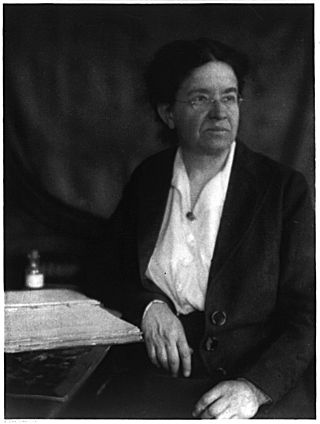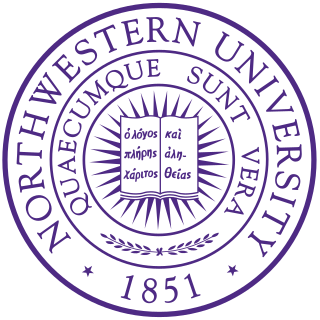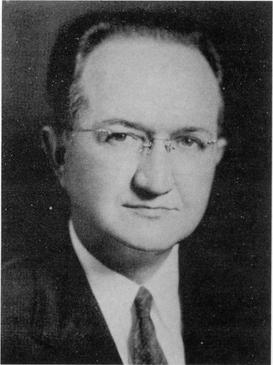
The Rockefeller University is a private biomedical research and graduate-only university in New York City, New York. It focuses primarily on the biological and medical sciences and provides doctoral and postdoctoral education. It is classified among "R2: Doctoral Universities – High research activity." Rockefeller is the oldest biomedical research institute in the United States.

Florence Rena Sabin was an American medical scientist. She was a pioneer for women in science; she was the first woman to hold a full professorship at Johns Hopkins School of Medicine, the first woman elected to the National Academy of Sciences, and the first woman to head a department at the Rockefeller Institute for Medical Research. During her years of retirement, she pursued a second career as a public health activist in Colorado, and in 1951 received the Albert Lasker Public Service Award for this work.

The Temerty Faculty of Medicine is the medical school of the University of Toronto. Founded in 1843, the faculty is based in Downtown Toronto and is one of Canada's oldest institutions of medical studies, being known for the discovery of insulin, stem cells and the site of the first single and double lung transplants in the world.

Peking Union Medical College, founded in 1906, is a selective public medical college based in Dongcheng, Beijing, China. It is a Chinese Ministry of Education Double First Class University Plan university. The school is tied to the Peking Union Medical College Hospital and has a joint 8-year clinical medicine science program with Tsinghua University.
Martin Henry Dawson was a Canadian researcher who made important contributions in the fields of infectious diseases.

Northwestern University Feinberg School of Medicine is the medical school of Northwestern University and is located in the Streeterville neighborhood of Chicago, Illinois. Founded in 1859, Feinberg offers a full-time Doctor of Medicine degree program, multiple joint degree programs, graduate medical education, and continuing medical education.
Robert Kho-Seng Lim, also known as Bobby Li, was a Singaporean medical doctor.
Alexander Gordon Bearn informally Alick Bearn, a physician, scientist and author, was professor at Rockefeller University and Cornell University Medical College. He was a member of the National Academy of Sciences, and had been Executive Officer of the American Philosophical Society. He died Friday, May 15, 2009, in Philadelphia. Prior to his death Bearn was working on a family history that followed the Bearn family from Béarn, France to Angus, Scotland and finally to the United States.
Philip Handler was an American nutritionist, and biochemist. He was President of the United States National Academy of Sciences for two terms from 1969 to 1981. He was also a recipient of the National Medal of Science.

Geoffrey Sharman Dawes, CBE, FRS, FRCOG, FRCP, FACOG(Hon), FAAP(Hon) was an English physiologist and was considered to be the foremost international authority on fetal and neonatal physiology.

Lester Reynold Dragstedt was an American surgeon who was the first to successfully separate conjoined twins. He was considered nationally known, and a leading authority on ulcers and gastroneuro surgery.

Feng Depei or Te-Pei Feng was a Chinese neuroscientist and physiologist. He is considered one of founders of modern Chinese neuroscience and physiology.
Rufus Cole was an American medical doctor and the first director of the Rockefeller University Hospital. Under his leadership significant advances in treatment of bacterial pneumonia and later against tuberculosis were made. In 1912 Cole and Alphonse Dochez developed a serum against Type 1 pneumococcus and also developed a method for testing whether an infection is caused by this or some other type of the bacterium. The New York Times in its obituary for Cole called him "a pioneer in clinical medicine" and "an authority on lobar pneumonia". The New York Times also wrote in the same obituary that Cole was President of Association of American Physicians in 1931, had honorary degrees from the University of Chicago and the National University of Ireland. Cole received Kober prize in 1938 for advances against tuberculosis. He is also credited by Franklin C. McLean for creating a blueprint for clinical studies.
Julius H. Comroe, Jr. was a surgeon, medical researcher, author and educator, described by The New York Times as an "award-winning expert on the functions and physiology of the human heart and lungs". His work contributed to advances in respiratory physiology, cardiology, heart and vascular surgery, and the treatment of pulmonary disease, hypertension and high blood pressure.

Chukwuedu Nathaniel II Nwokolopronunciation was a Nigerian physician specialist in tropical diseases. He was recognised for discovering and mapping out the area of paragonimiasis lung disease in Eastern Nigeria, with a study of the disease in Africa and clinical research for its control. He founded SICREP: Sickle Cell Research Programme to effectively fight the disease in Nigeria and globally.
Adrian R. Morrison was the 1991 AAAS Scientific Freedom and Responsibility Award recipient.

Jason X.-J. Yuan is an American physician scientist whose research interests center on pulmonary vascular pathobiology and pulmonary hypertension. His current research is primarily focused on the pathogenic mechanisms of pulmonary vascular diseases and right heart failure.
Shih-Chun Wang (1910-1993) was a Chinese-American medical doctor, neuroscientist, and pharmacology professor.

Maurice Holmes Rees was American medical educator who served as Dean of the University of Colorado School of Medicine and Superintendent of the University of Colorado Hospital from 1920 to 1945.
Barry Spencer Coller is an American physician known for his research in platelet physiology and for inventing the Abciximab. He is the David Rockefeller Professor, Physician-In-Chief, and Vice President for Medical Affairs at Rockefeller University.











